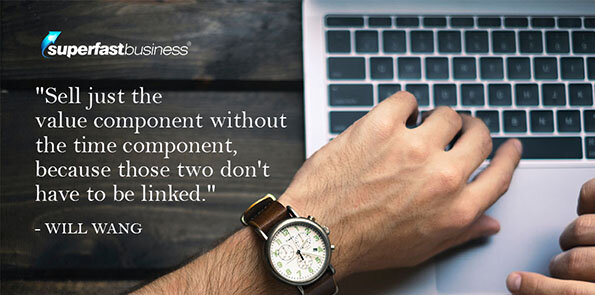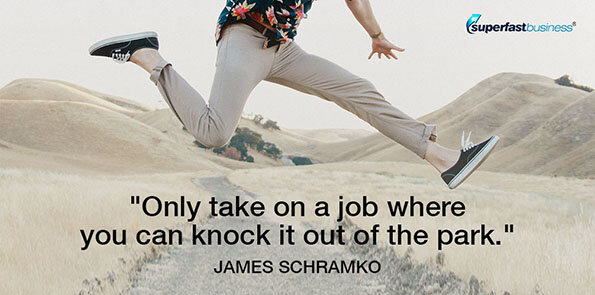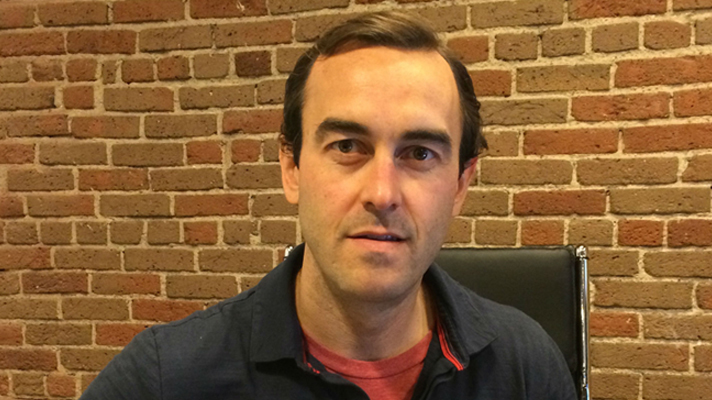Freelancing is a popular solution for people wanting more freedom in their work situation, or just looking to earn extra cash on the side. But is now the right time to take the leap?
James and Growth Labz's Will Wang dip into their own experiences to lay out the basics - what is freelancing, what are its challenges, how to freelance successfully, and how to answer that important question, Should I quit my job?
Podcast: Download (Duration: 34:29 — 38.3MB)
Get Notified Of Future Episodes Apple Podcasts | Spotify | Amazon Music | Android | Blubrry | Gaana | TuneIn | Deezer | Anghami | RSS | More
Podcast highlights:
01:47 – This thing called freelancing. Will explains what is freelancing, with emphasis on “free”.
03:07 – If you want to be your own boss… Are you thinking, Should I quit my job? Freelancing could be a logical step.
05:06 – The emotional impact of becoming a freelancer. This kind of freedom can move a grown man to tears.
10:12 – Hurdles along the freelancing journey. It’s not all rainbows and fairy tales.
15:52 – Just how do you get clients? Customer acquisition is, surprisingly, the least of a freelancer’s worries.
21:26 – What kind of help to expect from Will. Get stepped through Will’s process to achieve success – without the mistakes he made.
24:03 – Can you freelance in tandem with something else? Hold a job and freelance on the side? Learn what’s possible.
25:17 – What to do next if you’re interested. Will poses a very important question.
31:40 – Some thoughts to wrap things up. Our hosts lay it all out, what’s real and what’s myth.
Discover your ideal business model with James’s help
Will Wang from Growth Labz is a familiar presence to followers of our show. He and James have teamed up many times to discuss sales, copywriting, persuasion, getting clients, cold email outreach, and the like.
Today they tackle what James calls a more “general” topic: freelancing. Why freelancing? What is it? And how do you go about being a freelancer?
This thing called freelancing
Will runs a freelance agency, so James calls on him to define the term. What is freelancing?
Everyone’s got a different definition, says Will. To him, it’s your imposition of making a good income for yourself, having a good lifestyle at the same time, and being more in control of what you do, who you deal with, when you do it, but at the same time, making sure that you’ve got all of your expenses and lifestyle covered.
You could have only one client, or you might have a few. It ultimately comes down to how much control and freedom you’ve got, hence the word “free” in freelancing.
So they’re basically talking about how to become free, says James.
He has recently added a couple of partners to his portfolio, start-from-scratch freelancers who he’s helped transition from employeeship to going into business for themselves. And this new world has been sometimes overwhelming for them, something James and Will will touch on in this episode.
If you want to be your own boss…
Why does Will think freelancing is a logical step from being employed to having a business?
Will thinks the best example is some of the people James has helped recently. One of them has become a good friend and surf buddy of Will’s. This person was once in a job he didn’t enjoy. Now he enjoys a freedom where he can spend two hours in the surf without a boss and pending work hanging over his head.
It reminds Will of his own journey. Of course, he says, it depends on where you’re coming from. When he left his corporate job, he was earning a six-figure salary. It was a hard thing to replace with, say, an ecommerce business. He needed chunky retainers coming through. He needed to get paid what he was getting paid as a professional IT person. But he wanted to get out as soon as possible.
Freelancing to him made the most sense. He could charge what he was worth, and work with great clients. But he also charged based on the value he gave to a business, not the time he spent sitting in a chair, staring at a screen.
It’s a different mentality altogether, says James. Employees sell their time. That’s their effective hourly rate.
They have no costs, though. They generally get their pay after tax. They have some benefits, and often get told what to do. Though James’s team, he says, are more like mini-freelancers. He doesn’t tell them what to do. They figure out what they want to do.
The emotional impact of becoming a freelancer
Freelancing can be challenging, he says, when work is done and the next week or month suddenly stretches out in front of you. It’s a blank canvas. You don’t have to be a certain place at a certain time to do a certain thing for a certain amount. For some, that can be mind-blowing.
Will remembers his first Monday as a freelancer – the surprise in his kids’ eyes to see him there. And it was unreal to be home when people elsewhere were making their way unhappily to jobs in the city.
There was a lot of fear, he admits. He had bills to cover, had to bring income in. But the surprise on his kids’ faces sort of cemented for him what the freelancing journey was all about.
James had trouble processing the first few weeks after quitting his job, he says. It was an incredible thing. He hit a rough patch, though, when the company he was an affiliate for couldn’t pay him. He had money coming in, but a lot of money also gone out in ad bills. Christmas that year was something less than merry.
The year after, however, he was at the Gold Coast being interviewed by Yanik Silver about his journey. James still couldn’t believe then that he’d left his $300,000 job. It hit him in the shower, where he just cried. The realization that he could no longer be sacked was overwhelming.
Becoming a freelancer was half of his successful exit from the car industry. He had two clients paying him $5,500 per month on retainer. The other half of the puzzle was being an affiliate and an information marketer.
So freelancing means a lot to James. From his perspective, it’s one of the fastest ways to exit a job, and one of the easiest things to sell, because done-for-you sells like crazy.
It’s much easier, he says, to buy a McDonald’s meal than to raise a cow and plant potatoes and wheat. People will always want the done-for-you service, which is predominantly what a freelancer offers.
And generally, he says, you can bank on whatever expertise you already have, or learn a new one quickly. One of the partners he mentioned has harnessed most of his existing skill, repackaged for a different market. The other one learned a brand new skill from scratch.
If you don’t have all the keys yet, says James, you hopefully at least have the motivation. If the cycle of job, Netflix, wine, dinner, bed isn’t taking you where you want, freelancing is like taking the keys and driving to the destination of your choice.
Hurdles along the freelancing journey
James would like to discuss the roadblocks that Will sees people through.
There’s a few key ones, says Will. One of the biggest ones is, what do you do as a freelancer? If you’re really miserable and want to leave work, Will suggests you consider what kind of value or service you provide to your employer. Take that same value, and just provide it to other people.
 And sell just the value component without the time component, because those two don’t have to be linked. There’s other ways to leverage the value you can create, rather than just sitting for eight hours staring at a screen, where you might only be working for one or two of those hours. That’s the key thing.
And sell just the value component without the time component, because those two don’t have to be linked. There’s other ways to leverage the value you can create, rather than just sitting for eight hours staring at a screen, where you might only be working for one or two of those hours. That’s the key thing.
Will likes to take what skill you’ve already got, because it’s much quicker. You can go and learn something new, but it takes a little more practice, and a bit more time. It can work, however.
Will first freelanced as a data expert, because that was his day job. It was an easy transition. Now, though, he’s a copywriter. He’s rebranded his entire skill set, learned everything from scratch and practiced and gotten better to the point where he can confidently say he’s really good at what he does. And he loves the copy thing.
“Separating your ability to add value from just selling time is a huge, huge barrier to bust through.”
James does think separating your ability to add value from just selling time is a huge barrier to bust through. For his two fresh candidates, it’s been a massive challenge.
The other tendency, he says, is to try to do everything themselves. They just assume a new employee role, but as their own employer. And so one of the other roadblocks is scaling. They often have trouble hiring people or spending money.
Both James’s candidates were making about $150,000 a year. All profit, no costs. As freelancers, they can make $10,000 a month taking on five $2,000 a month customers, two $5,000 a month customers, or one $10,000 a month customer (which he wouldn’t recommend, but you can.)
Now, supposing that, it’s hard to start them thinking about spending money. But James says to them, Look, would you rather make $120,000 a year with no costs, a 99 percent profit margin? Or would you rather make $500,000 a year and spend $200,000, and do almost no work? And they inevitable say, yeah, I’d rather make 500 grand a year and spend 200.
So the first roadblock James has noticed is breaking through the time-for-money barrier, and two is breaking through the I’m-going-to-do-everything barrier.
Every time Will had a spare second, he said, he used to think, what else can I do for my clients? He felt guilty at the beginning, of not working when it was business hours.
You get out of it, though. Nowadays, he says, his clients don’t want to talk to him. They’re happy with their results and would rather spend their time on their own thing.
Just how do you get clients?
Will often gets asked, too, how do you get clients?
As a freelancer, he says, it’s actually not hard to get clients. There are so many different avenues, so many different ways to go out and talk to potential clients, start getting them through, and help them out.
There’s places like Upwork, where they can go and create a good profile and start getting or applying for jobs. They can reach out to friends and family for referrals and get into networks. They can attend events where their ideal clients are at. There are just so many different ways to land new work.
Once you start freelancing for a little bit, says Will, that becomes the least of the issues. Then it comes back to more of the things that they’ve been talking about, with the mindset and the guilt and how do I grow? How do I manage this? How do I not spend 80 hours a week?
One of the things Will does regret not doing sooner is getting James’s help with the whole process, because he went through it the hard way.
“The biggest concern in the beginning is, how do I get a client?”
Aside from memberships and revenue shares, the other thing James spends most of his time on is helping agencies. And Will nailed it, he says. The biggest concern in the beginning is, how do I get a client? That is the least of your trouble. It’s actually easier to make sales. It’s much harder to deliver sales and then scale the agency without hating its guts.
An agency can be difficult because it’s labor-intensive, meaning you need to be good at hiring and training at some point, unless you plan to do all the work.
It’s also client-intensive. You’re going to have, in some cases, clients with rather high expectations, especially if you’re not yet a world-level expert and they haven’t been pre-framed to believe that. So you might get better clients at better rates, and have happier experiences, if you can have really good positioning.
A shortcut James’s apprentices have taken is joining forces with him. They have access to his client base, and to James. That’s eliminated 98 percent of their concerns – how do I get a client? How do I do my marketing? How do I get my website up and running? How do I run ads? Their challenge is largely to deliver, and to be good at it.
 After you spend some time in the market, says Will, you start to understand, it’s not about customer acquisition, it’s about customer retention. Once you can turn your brain around to saying, Well, how can I deliver value as quickly as possible, as much value as possible, the clients will come.
After you spend some time in the market, says Will, you start to understand, it’s not about customer acquisition, it’s about customer retention. Once you can turn your brain around to saying, Well, how can I deliver value as quickly as possible, as much value as possible, the clients will come.
“Client selection precedes client acquisition.”
And preceding client acquisition, says James, is client selection. He reckons this is a make or break for most freelancers. Taking the wrong type of client will give you a terrible experience. It will be bad for you and for them.
 People make rookie mistakes, like getting paid in arrears, just like, really basic stuff. That’s where James and Will help a lot, because they say, get paid first, make your positioning ideal, tap into the source of perfect customers. Only take on a job where you can knock it out of the park. That would be James’s advice.
People make rookie mistakes, like getting paid in arrears, just like, really basic stuff. That’s where James and Will help a lot, because they say, get paid first, make your positioning ideal, tap into the source of perfect customers. Only take on a job where you can knock it out of the park. That would be James’s advice.
And starting off working for free can be dangerous, says James. You’re setting a low bar for yourself. You’re very easy to hire on that, and it’s hard to change the rules halfway through the project. By all means, do test projects with people to sample what you can do. But you’ve got to have a hard limit.
What kind of help to expect from Will
Listeners of the show know James doesn’t work with startups. Will, however, does. So how does that work, and how can one explore becoming a freelancer?
It’s been five years since Will started his business. It’s great now, but the first two years, he says, were miserable. He made every single mistake that he could have made.
If he can save someone from making those mistakes, they can achieve what he has much faster, and with much less effort and stress.
Will feels like he can take someone and give them a roadmap of, here’s what you do, here’s when you do it. Here’s how I’ve done it, and here’s what it looks like.
His theory is if he can take a group of people, and step them through the process and have them do what he did, or what he would do now if he was starting, he can get them out of their jobs pretty quickly. So he’s putting together an experiment, a group program.
Will knows the stuff he did is repeatable, but he wants to prove it to himself and to the world. He wants to help as many people as possible who are at the early stage, who are thinking, and looking for options, and maybe looking at the wrong things, or focusing on the wrong thought patterns. How can he help them break out of those thought patterns and take the right actions to be successful in the next six or 12 months?
James likes it, and thinks Will is a great teacher – dynamic, smart, a quick thinker. He synthesizes information and delivers his training in a way superior, perhaps, to his own.
Will says he’d challenge him on that point.
Can you freelance in tandem with something else?
As James mentioned, freelancing was half of his job exit strategy. Which leads him to the question, can you freelance while, say, still in a job? Because right now, there are a lot of people working from home who used to work in corporate.
Like a friend of James’s, who used to hate Mondays, and was always telling James he hated them.
How much do you hate them? asked James. And though, he says, it wasn’t his thing, he took this person under his wing. If you really want this, he daid, I will help you.
In six weeks, James’s friend was making $8,000 US per month from scratch. It wasn’t a course, and it wasn’t laid out in advance. It was just James guiding him each step of the way. And he couldn’t have done it if his friend hadn’t needed to do it.
Ths friend now does five figures a month with just a couple of clients, and is doing a great job. He calls James James the liberator.
What Will is offering, thinks James, is the same thing, and potentially very powerful. So how do people get in touch with him, and what’s the next step?
What to do next if you’re interested
It will sound a bit weird, says Will. But reflecting on his experience, he has to say, you’ve got to know that you want to do this. What he means is, some people say they hate their job. But maybe it’s the company. Maybe they like being an employee, or they don’t mind working for someone else. And it’s just that the company or their manager sucks.
“You’ve got control of your destiny for good or for bad.”
There is an element of risk involved. Obviously, you’ve got control of your destiny for good or for bad. The first thing to do is ask, do I really want to go down this path to become a freelancer, to be accountable for my life and my actions? And if the answer is a resounding yes, Will invites you to reach out to him at GrowthLabz.com.
What he’s doing at the moment is having a chat to every single person who comes through and giving them some kind of guidance or direction in terms of what they should be doing, where their value is, how to get the first clients, and literally walking them through the path that he would recommend walking, if he had to start again.
Obviously, they’ll bypass the mistakes Will made, such as leaving his job too early. When James left his job, he had a trigger point, to equal or surpass his $300,000 salary. Will says he was tricked into leaving his job with big promises, and the first two years were a mad scramble.
But it’s funny, says Will. The approach he took, which he wouldn’t recommend, also helped him to shape things and move in a very fast way.
“Comfort is the enemy of growth.”
Most people need that change in situation to stretch and to grow, says James. What do they say, comfort is the enemy of growth?
On the topic of really wanting something, James thinks too many people spend on programs, and feel like spending the money is actually achieving the result. Derek Sivers talks about this, he says, that you shouldn’t disclose your goals publicly, because when you do, you’re actually experiencing the same high as if you’ve achieved it.
When you read a sales letter, you get walked through all the emotions by a skillful copywriter, and then relieve the tension when you pay the money. And then basically, you stop. So you’ve been through the experience as if you’ve achieved the result, and then you don’t actually do the work.
So make sure you really want it, because that’s the first selection filter. And if you really, really want it, and you really feel you’re going to do something with it, you might be just another Will Wang, and that’s a good thing.
Some thoughts to wrap things up
In closing, Will thinks freelancing can be misrepresented. After all, people only talk about the good stuff, the freedom. You see the gurus with their feet in the sand and a laptop, drinking cocktails. That’s silly, says Will, and it’s not what freelancing actually is.
The real gold, he says, and the real driver behind freelancing, is just having that sense of control or freedom to say in the middle of the day, hey, I’m going to spend two hours with my kids, just because I want to.
But you need to work to get there. You can’t skip the work. It has to be done one way or another. Don’t expect rainbows and fairy tales from the very beginning. You’re going to have to work hard, especially if you’re going to keep your job. There’s going to be long hours, there’s going to be a grind. Will doesn’t want to sugarcoat it. He wants people to know the reality.
But at the same time, you can look forward to having an amazing life in six months, a year, two years, however long it takes to get there. The end for Will, personally, is so worth it. But you have to be willing to put up with the initial slog. And that’s the truth of his journey with freelancing.
 BHW, says James. Bloody hard work is involved. He worked as hard as anyone at the start of his career and his business. But to have what he has now, he wouldn’t do it any other way. You’ve got to burn a lot of rocket fuel to get that booster off the ground, so that you can have your zero gravity experience, which is sort where he feels he is now. He’s loving it, but it was a bit of an effort to get there.
BHW, says James. Bloody hard work is involved. He worked as hard as anyone at the start of his career and his business. But to have what he has now, he wouldn’t do it any other way. You’ve got to burn a lot of rocket fuel to get that booster off the ground, so that you can have your zero gravity experience, which is sort where he feels he is now. He’s loving it, but it was a bit of an effort to get there.
If you enjoyed the show and maybe know someone interested in freelancing, send them to this episode.
And if you’re a would-be freelancer wanting help from Will, look him up at GrowthLabz.com.
Get expert business guidance with James’s help
Want a start in freelancing? Get experienced help from Will Wang at GrowthLabz.com









Leave a Reply